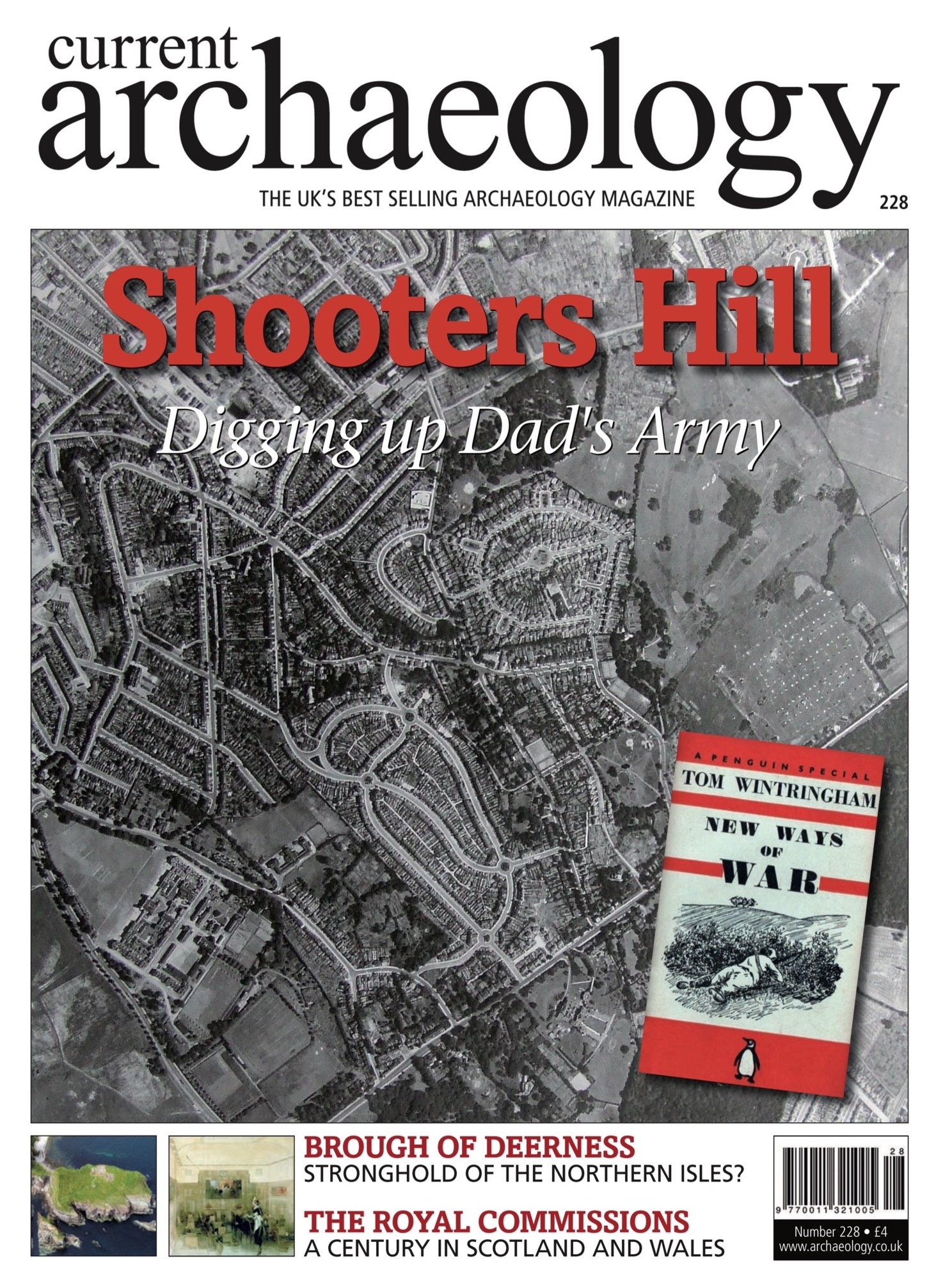With this year’s Archaeology Festival in Cardiff just around the corner, things have been very busy here at Current Archaeology. We’re thrilled with the outstanding programme, packed with talks at the very forefront of archaeological research, and will be sure to bring as many of these projects to the pages of the magazine as possible. We are also looking forward to the Current Archaeology Awards and will be sure to update our readers on the winners – after all, it was your votes that decided them!
Our features this month cover the four corners of Britain: challenging previous assumptions at Vindolanda, examining a remote Viking settlement in Orkney, celebrating 100 years of hard work in Scotland and Wales, and, finally, uncovering evidence in London of just how ready we were for a German invasion.
A ROMAN CLOCK AT VINDOLANDA
When Current Archaeology 224 reported on an unusual discovery from Vindolanda, the consensus was that the 8cm bronze fragment inscribed with references to the passage of time, formed part of a Roman ‘perpetual’ calendar used to record the passing days. However, leading ancient technology expert Michael Lewis now believes it may be evidence of something still more intriguing and remarkable. Could this small bronze strip be all that remains of one of the most sophisticated instruments known to the ancient world: an anaphoric water-clock?
BROUGH OF DEERNESS
The windswept sea stack on the east coast of Mainland, Orkney, was once home to a thriving Viking settlement and is the site of one of the earliest known Christian chapels in the North Atlantic region – this chapel may even pre-date the traditional conversion date of AD 995. The settlement, perched high on top of this exposed location, is remarkably well-preserved and now excavations by Cambridge archaeologists James Barrett and Adam Slater are revealing a complex story of power, religion and ‘transnationalism’ in Early Historic Scotland.
CELEBRATING 100: THE SCOTTISH AND WELSH COMMISSIONS
King Edward VII signed royal warrants in 1908 to establish the Royal Commissions of Scotland, Wales and England with the brief to ‘make an inventory of the Ancient and Historical Monuments and Constructions…to specify those worthy of preservation’. While the English Royal Commission became part of English Heritage, the Scottish and Welsh endured. Chris Catling looks back over the last 100 years and reviews their achievements and the changes instigated by these invaluable institutions.
DIGGING UP DAD’S ARMY
In stark contrast to the comfortable, comic image of television sitcom’s Captain Mainwaring and his inept Home Guard, excavations at Shooters Hill in south east London reveal that 1940’s Britain, under the very real threat of an invading enemy army, was preparing itself for serious urban guerrilla conflict.
OPINION
Time for a Change
ODD SOCS
The Mausolea and Monuments Trust

